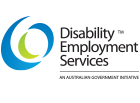Australian business leaders are most likely to be high-earning , full-time workers in senior management positions. New research shows that this mirrors demographics that are less likely to prioritise workplace diversity. This highlights a missed opportunity for business leaders. By not prioritising inclusion, they narrow their talent pool and miss the business benefits of diverse workforces that include people living with disability, Indigenous Australians and other minority or cultural groups.
The survey figures, released by leading employment services provider atWork Australia, reveal that around a quarter (26%) of all Australians would be comfortable to work at a business that is not inclusive of different people, a figure that rises to 32% in Victoria. This group was most likely to include men (35% compared to 18% of women), senior managers (44% compared to 22% of the general public) and those with a household income over $100,000 (31% compared to 23% of lower income households).
With many industries rebuilding, the time is right to redress the balance of workforce diversity, says Sotir Kondov, atWork Australia’s Executive General Manager for Disability Employment Services. “Currently, 66% of Australians are employed, however this figure drops to 48% for those living with disability and 46.6% for Indigenous Australians. Additionally, there are 1.5 million jobless families nationwide, which accounts for one in five6.
“2021 presents a unique opportunity to give everyone a fair go at employment, which starts with educating business leaders on the benefits of diverse teams. For example, industry research shows that employees living with disability generate less turnover and have superior attendance over their peers ,” he adds.
The national survey of 1,696 people asked respondents whether they were comfortable, uncomfortable or would refuse to work in a business that was not committed to having a diverse and inclusive workforce. Concerningly, about 1 in 5 people within important working population groups were likely to be comfortable with no focus on diversity in the workplace, including:
• The self-employed (36%) and office workers (30%)
• Over a third (35%) of full-time workers and almost a fifth (19%) part-timers
• Nearly one in five (19%) of students
atWork Australia is a leading supplier of Disability Employment Services in its 300 locations nationwide connecting businesses with people living with disability looking for work. It further helps to provide companies with access to the full talent pool, including jobactive, ParentsNext, and Indigenous Employment Services programs in WA, as well as NDIS services in WA and NSW. In 2020 atWork Australia placed over 11,000 people looking for work from diverse backgrounds with more than 6,700 businesses, including Australia Post, McDonalds, Sodexo and MSN Enterprises.
“Australia’s talent pool is rich with diverse perspectives, with one in five Australians living with a disability, injury or health condition , 3.3% coming from Indigenous communities and 3.2% identifying as LGBTQI+,” adds Sotir. “Businesses have the chance to reap the benefits of creating an employment landscape that works for everyone,” he adds.
While diverse workplaces benefit minority groups, businesses also stand to gain with a 2018 study1 showing that companies which prioritise inclusion achieve an average of 28% higher revenue, 30% higher profit margins and double the net income. Additionally, on average, they see staff retention go up by 90%6, which allows them to focus on their business and not ‘revolving door’ recruitment.
“Diversity is good for business,” says Tom Lowther, General Manager at mineral testing laboratory, Bureau Veritas, which has employed indigenous people through working with atWork Australia. I’m surprised that there are still businesses in Australia that are not geared toward inclusive workplaces. We have had nothing but positive experiences working with diverse groups and the assistance from atWork Australia in understanding our talent requirements and providing ongoing support for each placement has been invaluable.
“We champion diversity at every stage, from our ethics, to our training programs and even first day inductions. By opening the door to employment to everyone, we’ve helped people from a range of backgrounds and groups excel in their jobs and progress in their careers, which in turn helps the business, it’s a win-win,” he adds.
Employers like Bureau Veritas and providers of employment services, such as atWork Australia, are working toward a fairer future, continues Sotir. “While there is a way to go, the data does show that the majority of Australians are uncomfortable with, or would refuse to work at, a company that didn’t support equal access to jobs.”
Nationally, the number of people who would refuse to work in a company that didn’t promote diversity (36%) far outweighed those that would be comfortable to do so (26%).



